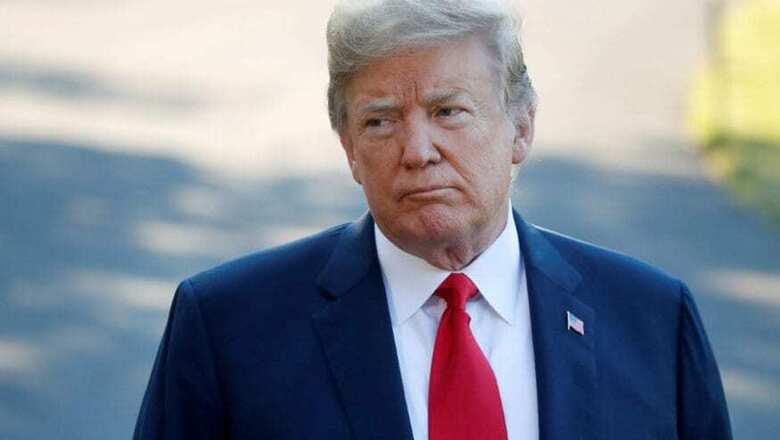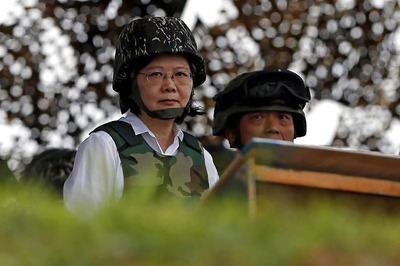
views
New York: The dollar slid against the euro and pound Friday as US President Donald Trump adopted an aggressive posture on trade and foreign exchange, stoking talk of a currency war in addition to a trade war.
In an interview with CNBC television broadcast Friday, Trump bluntly threatened to slap all Chinese imported goods with tariffs, saying the US has been "ripped off by China for a long time."
Later in a pair of tweets, Trump attacked China and the European Union for keeping their currencies low to gain a trade advantage, while again blasting the Federal Reserve for raising interest rates.
China, the European Union and others have been manipulating their currencies and interest rates lower, while the U.S. is raising rates while the dollars gets stronger and stronger with each passing day - taking away our big competitive edge. As usual, not a level playing field...— Donald J. Trump (@realDonaldTrump) July 20, 2018
That came after CNBC on Thursday aired portions of a Trump interview in which he criticized the Federal Reserve's current course of interest rate hikes.
The dollar fell against most major currencies on Friday, adding to Thursday's declines.
"Currency is now part of the trade war, folks," said Greg McKenna, market strategist at AxiTrader.
"And it is worth pondering whether this is a president who is going to break with 25-30 years of tradition in not interfering in Fed policy deliberations going forward."
The currency movements also reverberated in foreign stock markets, pressuring bourses in Tokyo, Europe and London.
US stocks finished the session mildly lower, with Trump's comments on trade and the Fed offsetting a round of mostly solid US earnings reports.
- Yuan weakness hits imports -
But Trump's comments did not do much to push the dollar down versus the yuan, however. The Chinese central bank implemented the sharpest one-day lowering of the trading range for the yuan in two years.
The yuan, which has fallen about 10 percent since mid-April, is expected to extend its steady decline, providing Beijing with a buffer against punitive US trade tariffs.
"Chinese authorities have been responding to Mr. Trump's threat of tariffs (by) continuously devaluing the yuan, a policy move that has the impact of making exports into China more expensive," said Boris Schlossberg, managing director at BK Asset Management.
"Trump has been clearly bothered by this tactic and yesterday's comments reflected his frustration at losing the battle in the trade war."
Jasper Lawler, head of research at London Capital Group, called China's lowering of the trading band "the starting of a currency war" in response to the trade war.
Fears are growing over a fierce global trade war, after Trump's imposition of hefty import taxes on steel and aluminum from the EU, Canada and Mexico, in addition to levies already on goods from China worth tens of billions of dollars that have sparked retaliatory tariffs.
European stocks slid sharply in afternoon trading, buffeted by their stronger currencies, but clawed back much of their losses. London closed less than a tenth of a percentage point lower while Frankfurt ended the day down nearly 1.0 percent.




















Comments
0 comment